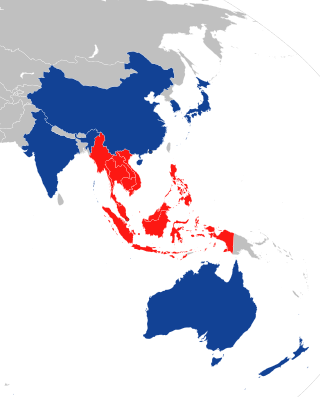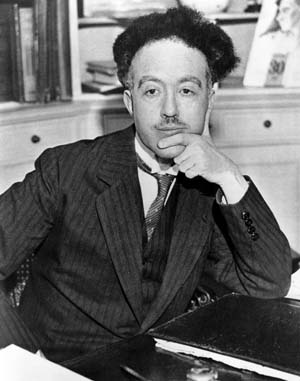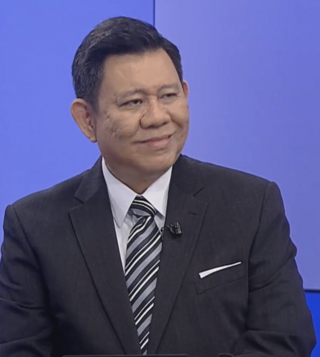
The National Medal of Science is an honor bestowed by the President of the United States to individuals in science and engineering who have made important contributions to the advancement of knowledge in the fields of behavioral and social sciences, biology, chemistry, engineering, mathematics and physics. The twelve member presidential Committee on the National Medal of Science is responsible for selecting award recipients and is administered by the National Science Foundation (NSF). It is the highest science award in the United States.

The ASEAN Free Trade Area (AFTA) is a trade bloc agreement by the Association of Southeast Asian Nations supporting local trade and manufacturing in all ASEAN countries, and facilitating economic integration with regional and international allies. It stands as one of the largest and most important free trade areas (FTA) in the world, and together with its network of dialogue partners, drove some of the world's largest multilateral forums and blocs, including Asia-Pacific Economic Cooperation, East Asia Summit and Regional Comprehensive Economic Partnership.

An engineering technologist is a professional trained in certain aspects of development and implementation of a respective area of technology. An education in engineering technology concentrates more on application and less on theory than does an engineering education. Engineering technologists often assist engineers; but after years of experience, they can also become engineers. Like engineers, areas where engineering technologists can work include product design, fabrication, and testing. Engineering technologists sometimes rise to senior management positions in industry or become entrepreneurs.
The Shanti Swarup Bhatnagar Prize for Science and Technology (SSB) was a science award in India given annually by the Council of Scientific and Industrial Research (CSIR) for notable and outstanding research, applied or fundamental, in biology, chemistry, environmental science, engineering, mathematics, medicine, and physics. The prize recognized outstanding Indian work in science and technology. It was the highest, most prestigious and coveted prize given in the area of multidisciplinary science in India. The award was named after the founder Director of the Council of Scientific & Industrial Research, Shanti Swarup Bhatnagar. It was first awarded in 1958.

The National Medal of Technology and Innovation is an honor granted by the President of the United States to American inventors and innovators who have made significant contributions to the development of new and important technology. The award may be granted to a specific person, to a group of people or to an entire organization or corporation. It is the highest honor the United States can confer to a US citizen for achievements related to technological progress.
The Sydney Accord is an international mutual recognition agreement for qualifications in the fields of engineering technology.

The Kalinga Prize for the Popularization of Science is an award given by UNESCO for exceptional skill in presenting scientific ideas to lay people. It was created in 1952, following a donation from Biju Patnaik, Founder President of the Kalinga Foundation Trust in India.

The ASEAN Para Games is a biennial multi-sport event held after every Southeast Asian Games involving disabled athletes from the current 11 Southeast Asia countries. Participating athletes have a variety of disabilities ranging from spastic, cerebral palsy, mobility disabilities, visual disabilities, amputated to intellectual disabilities. The ASEAN Para Games is under the regulation of the ASEAN Para Sports Federation (APSF) with supervision by the International Paralympic Committee (IPC) and the Asian Paralympic Committee and is traditionally hosted by the country where the Southeast Asian Games took place.
The ASEAN Eminent Persons Group(EPG) was a group of prominent citizens from the Association of Southeast Asian Nations (ASEAN) member countries, tasked to create the ASEAN Charter. The group was formed on 12 December 2005 via the 11th ASEAN Summit Declaration in Kuala Lumpur, Malaysia.

The Institute of Food Technologists (IFT) is an international, non-profit scientific society of professionals engaged in food science, food technology, and related areas in academia, government and industry. It has more than 17,000 members from more than 95 countries.

Caesar Aya-ay Saloma is a professor of the National Institute of Physics (NIP) at the University of the Philippines College of Science and a member of the National Academy of Science and Technology.

Lourdes J. Cruz is a Filipino biochemist whose research has contributed to the understanding of the biochemistry of toxic peptides from the venom of fish-hunting Conus marine snails. Throughout the Philippines, she is known as the Sea Snail Venom Specialist. The characterization of over 50 biologically active peptides from the snail's venom had been made possible, in part, by her studies. Scientific findings regarding the peptides found in snails have applications in diagnostic tools for cancers and the development of drugs for the treatment of neurological disorders. She has also contributed to the development of conotoxins as tools for examining the activity of the human brain. Her contributions to science have earned her several awards and acknowledgements including being named a National Scientist of the Philippines in 2006.

The enlargement of the Associationof Southeast Asian Nations is the process of expanding the Association of Southeast Asian Nations (ASEAN) through the accession of new member states. This process began with ASEAN's five original members, who founded the association through the signing of the Bangkok Declaration in 1967. Since then, the ASEAN's membership has grown to ten with the accession of Cambodia in 1999.

The National Academy of Science and Technology is the highest recognition and scientific advisory body of the Philippines under the Department of Science and Technology. It was created through Presidential Decree 1003-A issued by President Ferdinand E. Marcos in 1976 to honor and recognize Filipino scientists who made worthy contributions in the advancement of science and technology in the country. It also recommends individuals to be conferred the Order of National Scientist upon approval of the President of the Philippines.
National Academy of Science and Technology recognizes worthy contributions of Filipino scientists in the advancement of science and technology in the country during its Annual Scientific Meeting. It includes the following recognitions: Outstanding Young Scientists (OYS), The World Academy of Sciences for Developing Countries (TWAS) Prize for Young Scientists in the Philippines, NAST Talent Search for Young Scientists, NAST Environmental Science Award, NAST-LELEDFI Award for Outstanding Research in Tropical Medicine, Outstanding Scientific Papers, Outstanding Books and Outstanding Monographs.

Julio Cabral Teehankee is a Filipino political scientist. He is full professor of political science and international studies at De La Salle University (DLSU) where he served as chair of the Political Science Department (1994–2007); chair of the International Studies Department (2008–2013); and dean of the College of Liberal Arts (2013–2017).
Lisa Ng is a Singaporean viral immunologist. In 2008, she became the first Singaporean and the first woman to win the ASEAN Young Scientist and Technologist Award for her work in developing diagnostic kits for Avian Influenza and Sars-CoV. She has been featured as part of the "Beyond Curie" project as a pioneer in viral immunology, as well as being inducted into the Singapore Women's Hall of Fame. Her ongoing research includes endemic tropical diseases and Sars-CoV-19.

Project NOAH (Nationwide Operational Assessment of Hazard) is the Philippines' primary disaster risk reduction and management program. Managed by the University of the Philippines, it was initially administered by the Department of Science and Technology (DOST) from 2012 to 2017.

Bangladesh Academy of Sciences (BAS) is an academic forum for Bangladeshi scientists and technologists. Established in 1973, it aims to fulfill the role of promoting research and development of sciences in Bangladesh.













